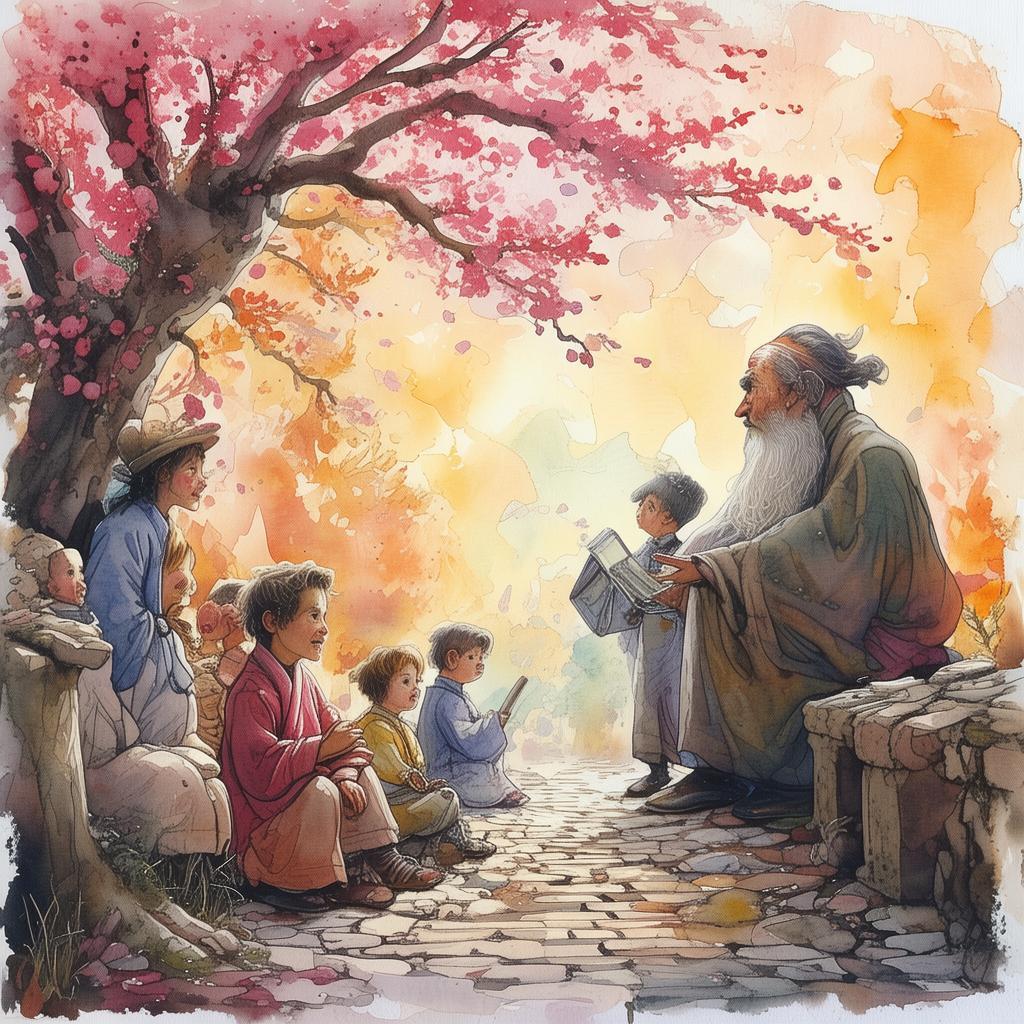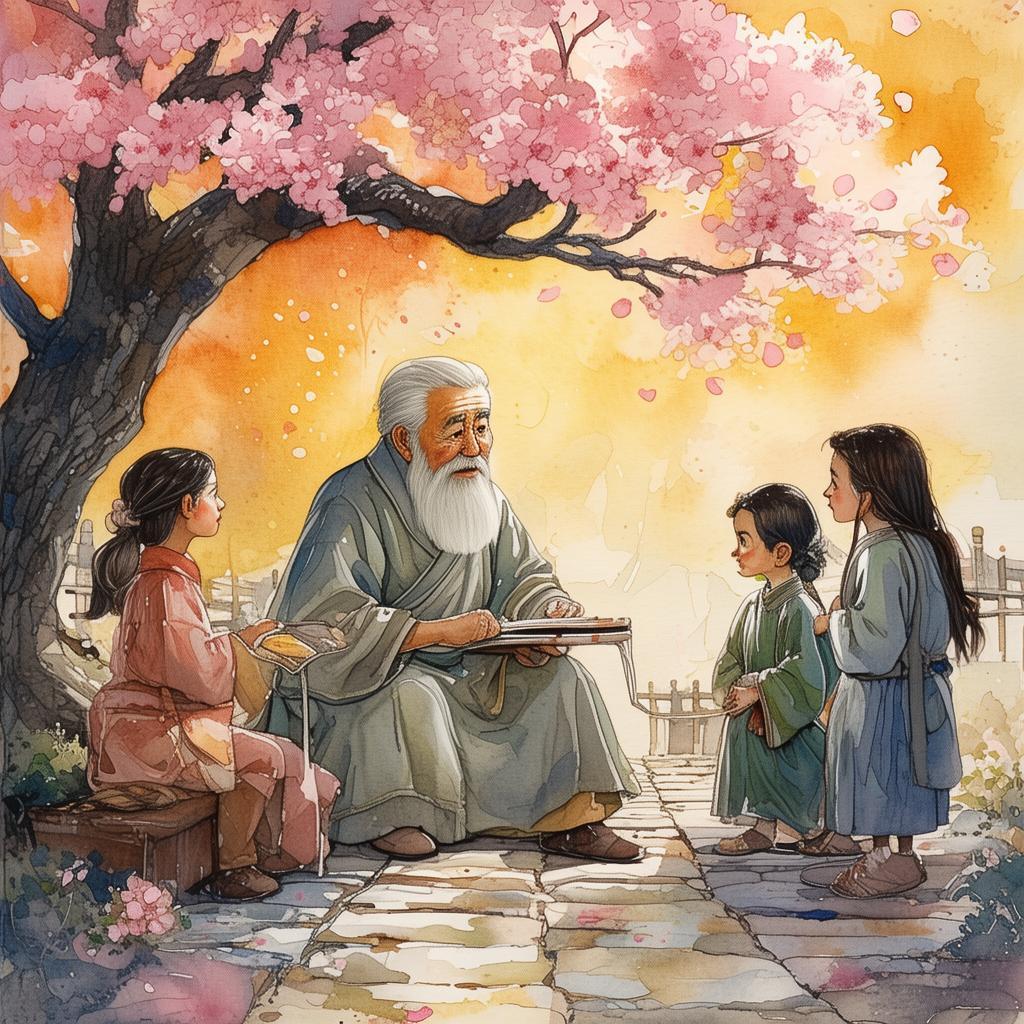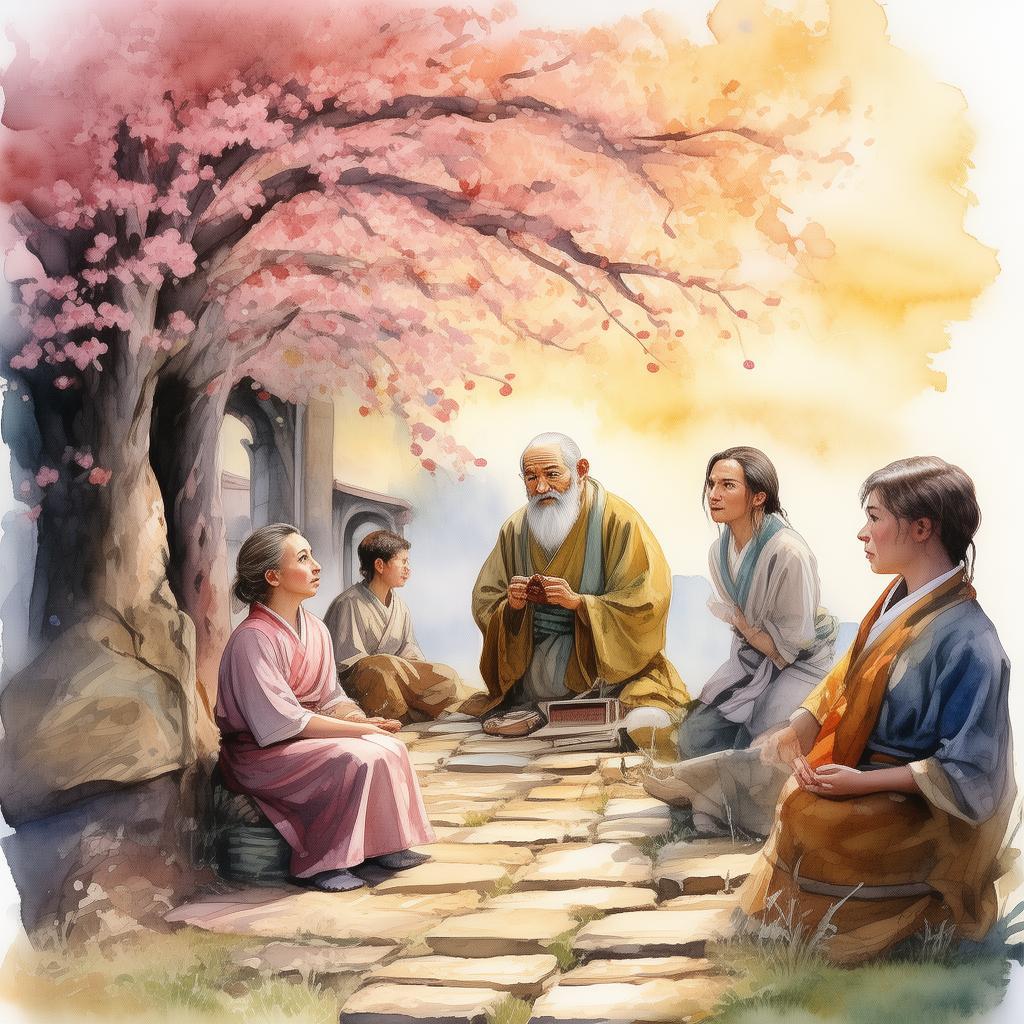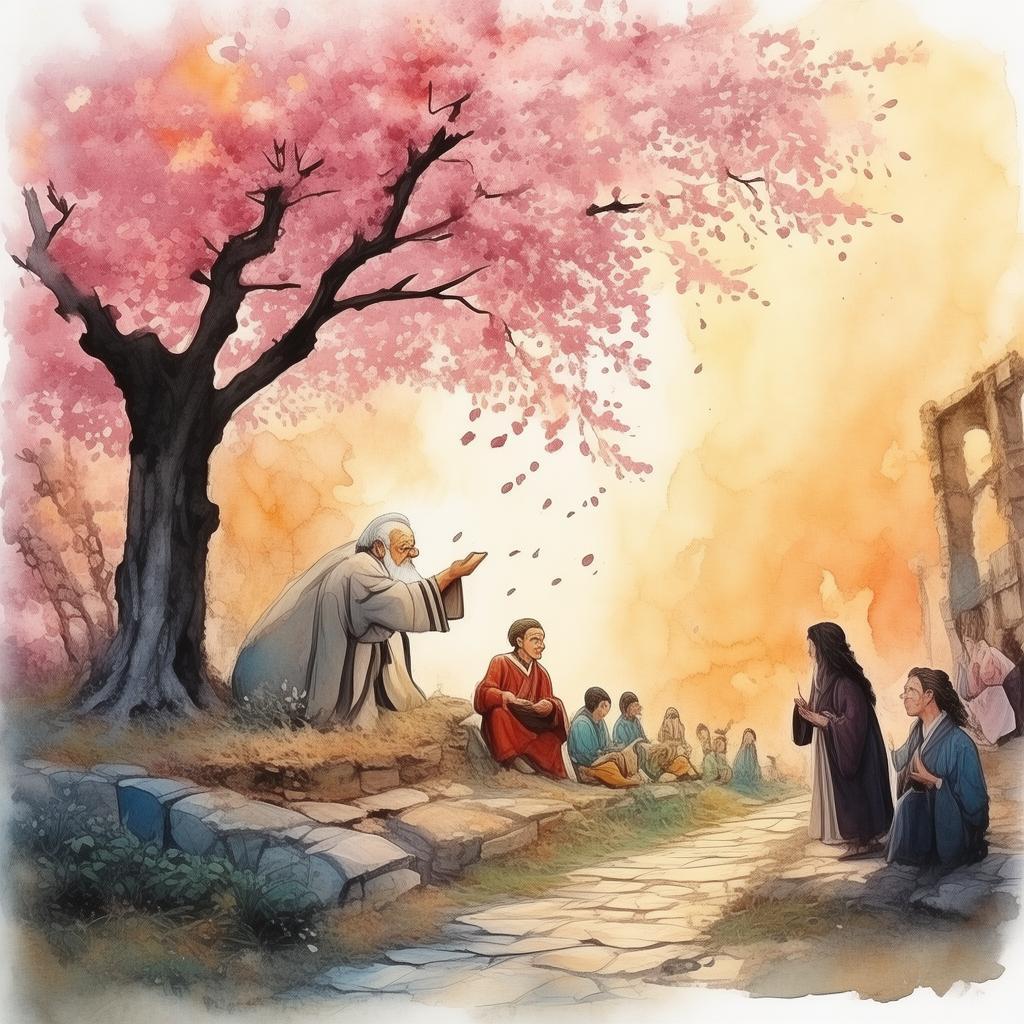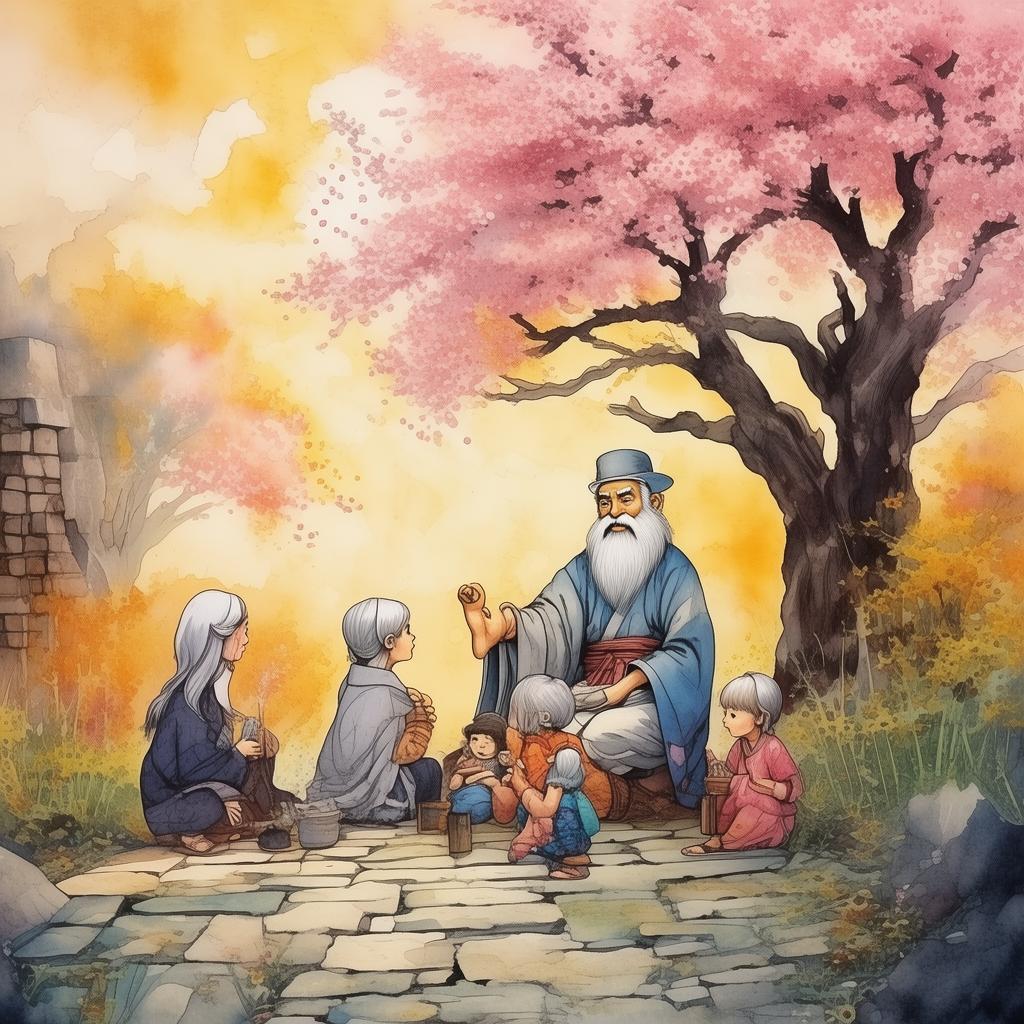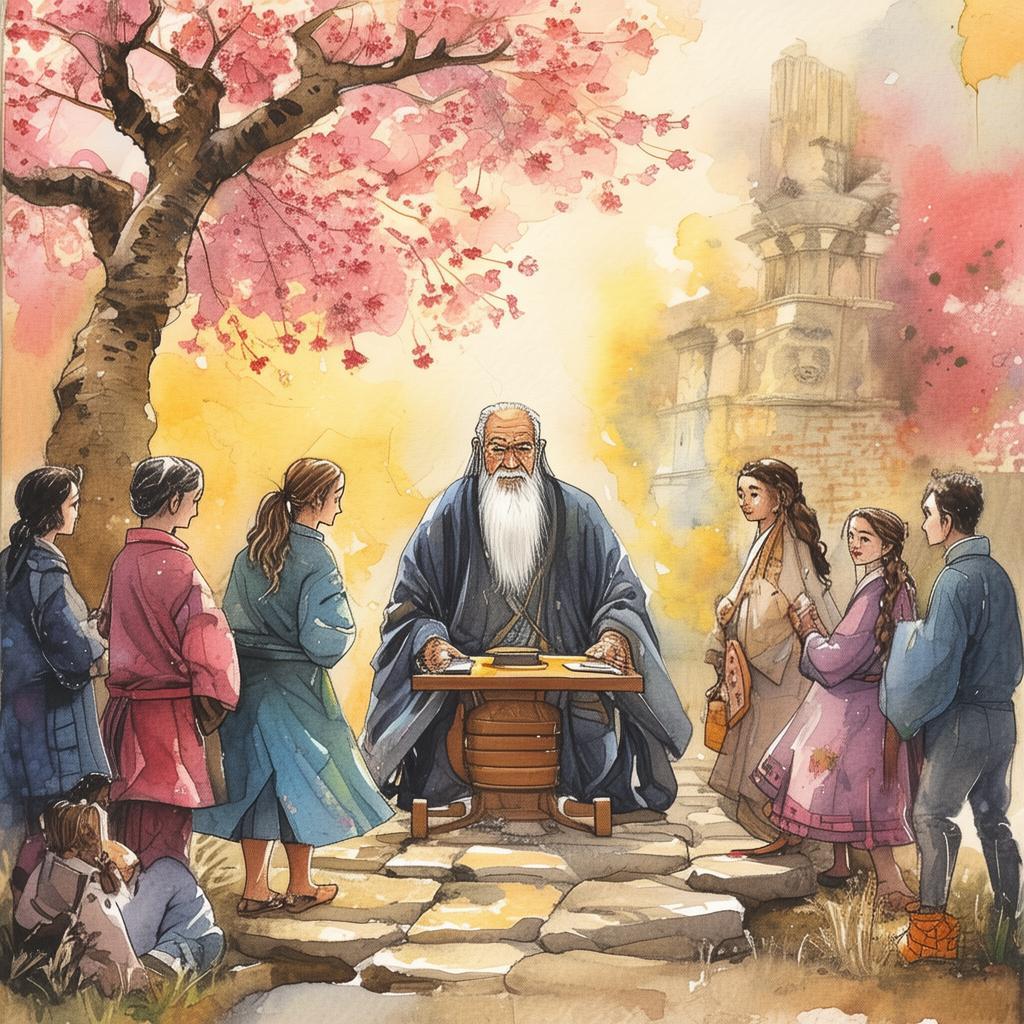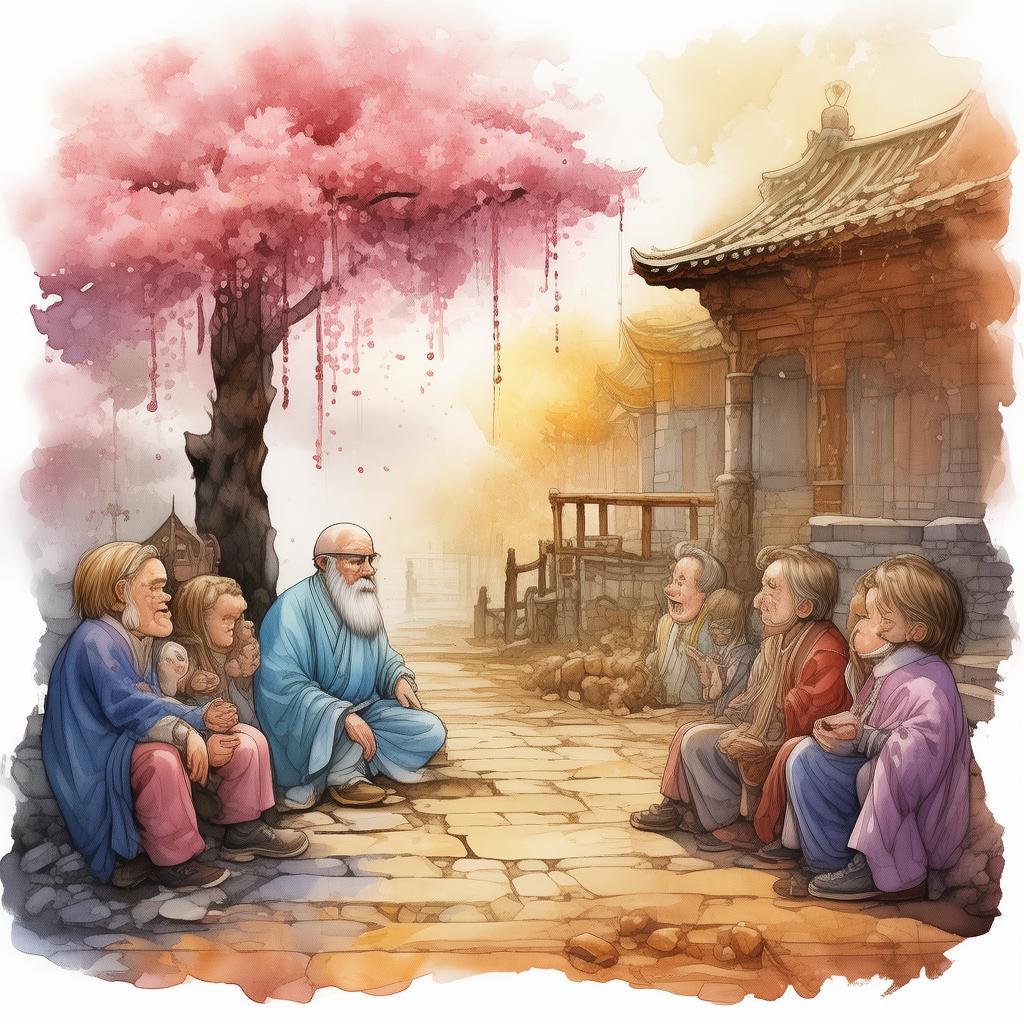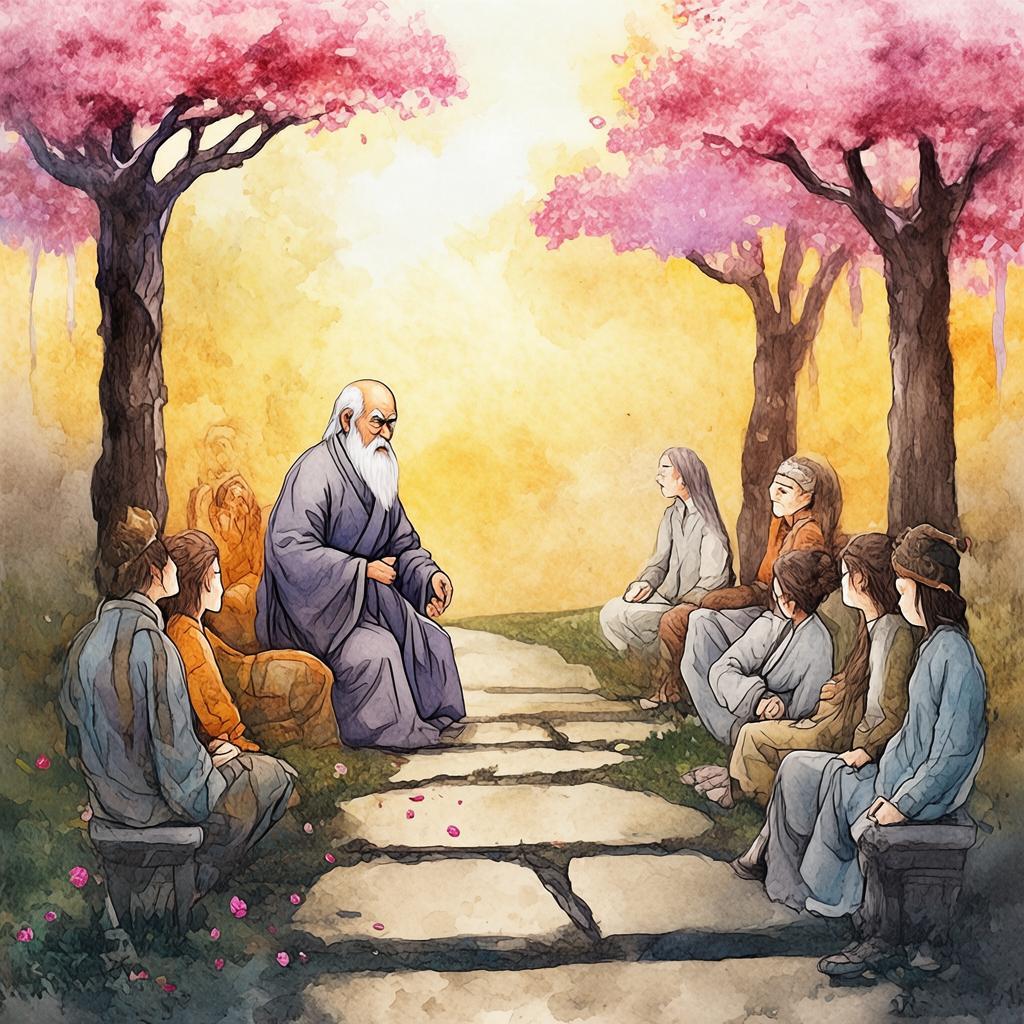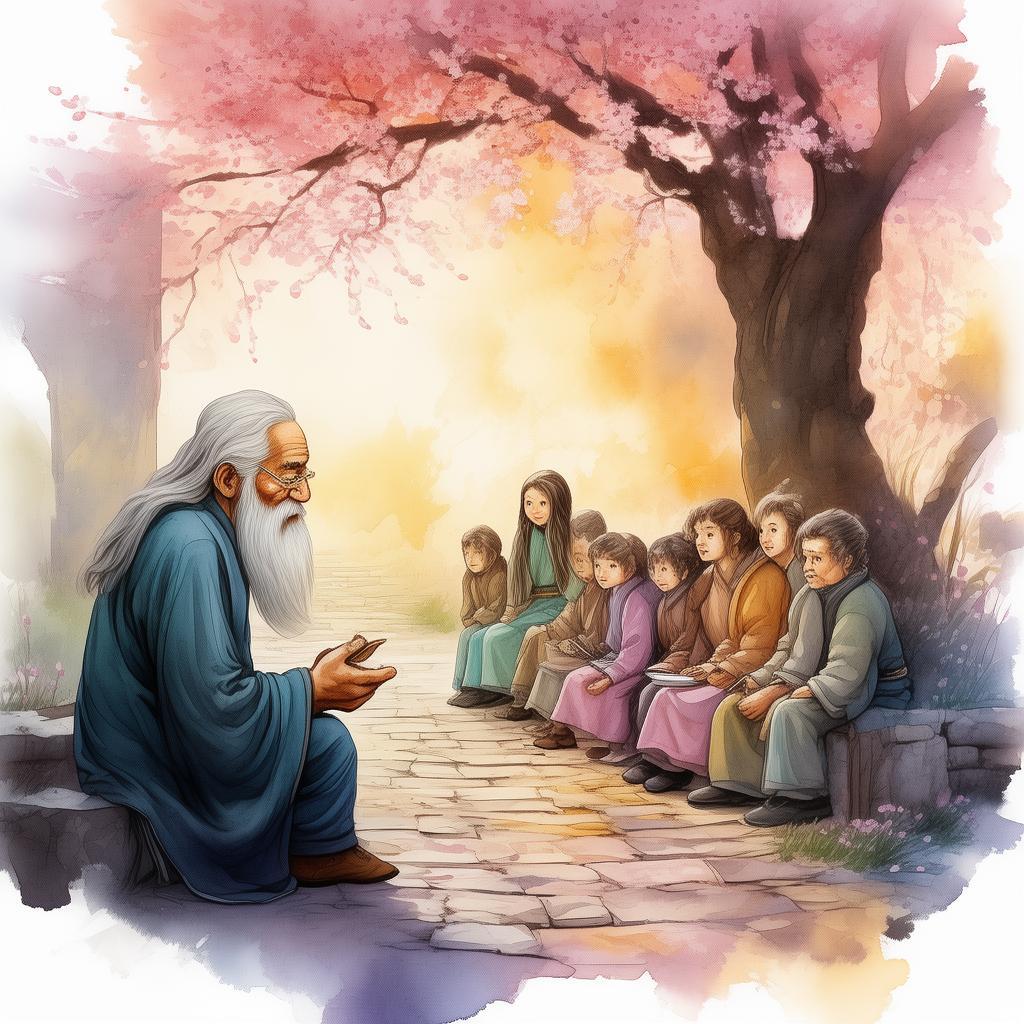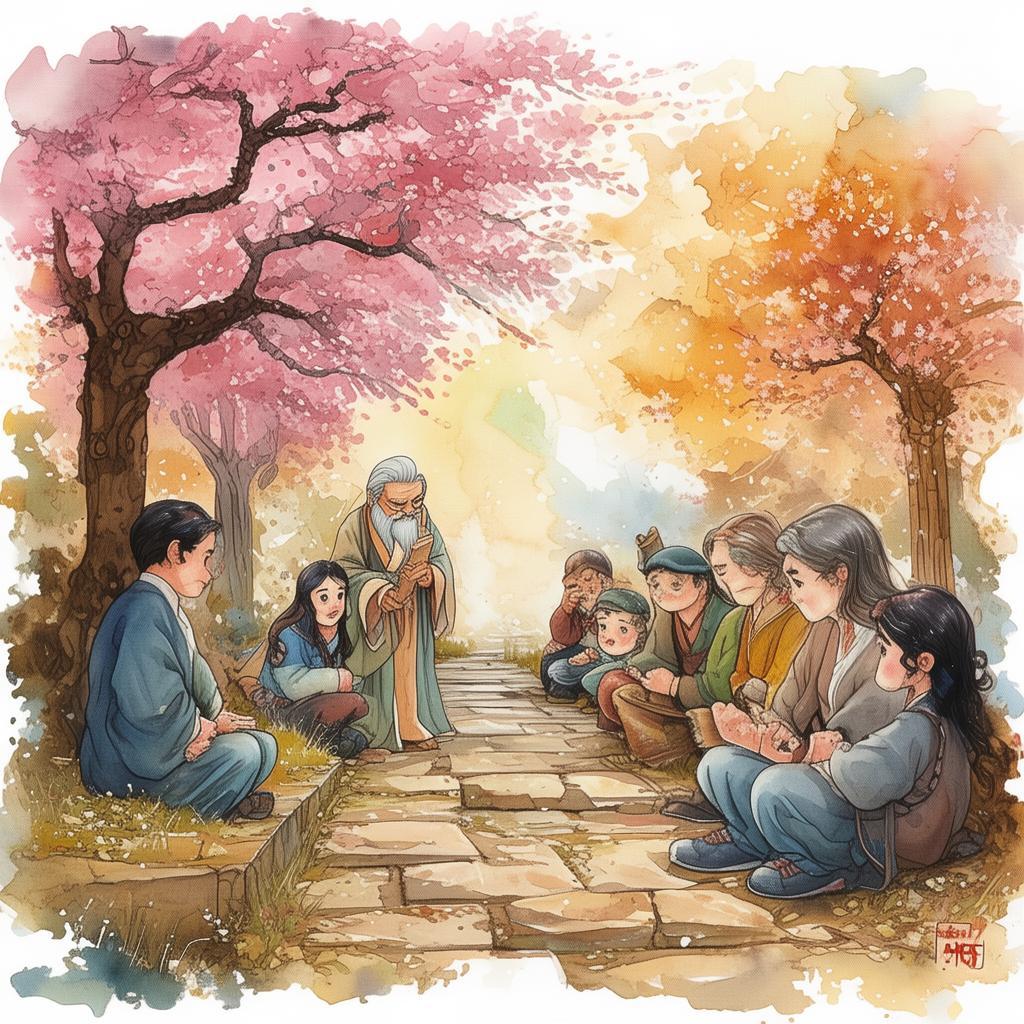Time-Traveling Tortoise's Pursuit of the Ultimate Wisdom
In the serene mountains of ancient China, there lived a wise tortoise named Huaqi. Known throughout the land for his ancient age and profound wisdom, Huaqi had a peculiar quest: to uncover the true meaning behind the countless proverbs that adorned the walls of scholars and the lips of common folk alike. His journey began on a crisp autumn morning, as the sun rose over the tranquil village of Bingzhuang.
Huaqi was not an ordinary tortoise. His shell bore intricate carvings of ancient texts and symbols, and his eyes held a clarity that belied his years. The villagers had long regarded him as a guardian of wisdom, a sage who could interpret the deepest mysteries of the world. Yet, Huaqi felt a void in his understanding, a gap that only time and travel could fill.
The first proverb he sought to unravel was the famous "A journey of a thousand miles begins with a single step." Huaqi pondered this for days, walking the single step that led from Bingzhuang to the bustling capital, Chang'an. As he journeyed, he encountered many scholars, each interpreting the proverb in their own way. Some said it was about the importance of taking action, while others believed it was a caution against hasty decisions.
In Chang'an, Huaqi met an old monk who, upon hearing his quest, offered a different perspective. "The journey of a thousand miles begins with a single step because it is the first step that shapes your path," the monk said, his voice filled with serene wisdom. "Each step you take is a part of your story, and together, they form the tapestry of your life."
With this new insight, Huaqi continued his journey, his path now illuminated by the understanding that every step is a part of his journey, and that each one contributes to the story of his life.
Next, Huaqi sought to understand the proverb "Give a man a fish, and you feed him for a day. Teach a man to fish, and you feed him for a lifetime." He traveled to the coastal village of Longgang, where fishing was the main livelihood. Here, he met an old fisherman who had taught his son the art of fishing.
The fisherman explained, "When you teach someone to fish, you not only provide for their immediate needs but also empower them to provide for themselves in the future. Wisdom, like fishing, is a skill that can be passed down and used to nourish many."
Huaqi realized that teaching wisdom was akin to teaching fishing; it provided a means for self-sufficiency and growth. This understanding deepened his resolve to seek more proverbs and their meanings.
As he traveled further, Huaqi encountered a young farmer who was plowing his fields. The farmer, overhearing Huaqi's conversation about wisdom, shared a proverb he often repeated: "The early bird catches the worm." The farmer explained that this meant being proactive and seizing opportunities when they arose.
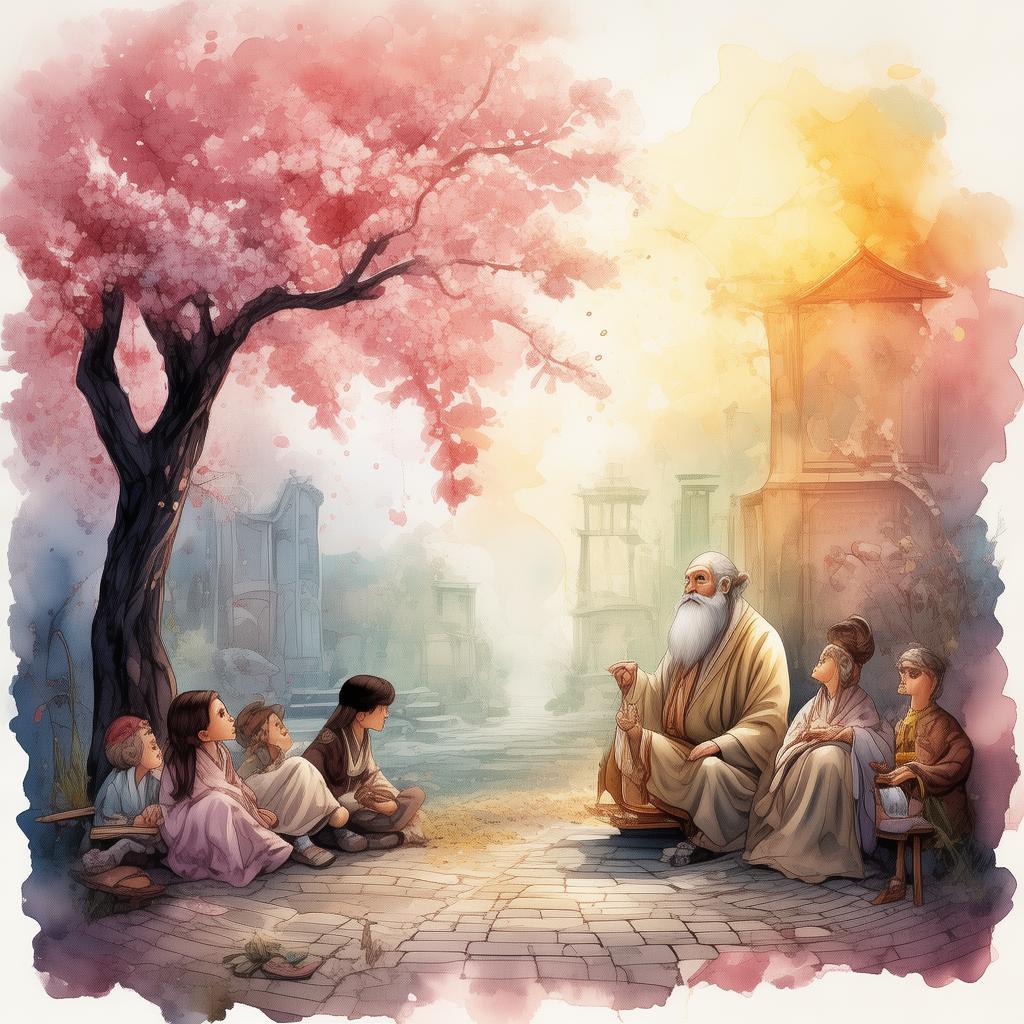
Inspired by the farmer's words, Huaqi decided to visit a bustling market in the nearby town of Qianli. Here, he met a street vendor who had been selling fruits and vegetables for decades. The vendor, a spry old woman, told Huaqi that she had learned the value of patience and persistence from her trade.
"The market is a fickle place," she said. "The early bird catches the worm, but so does the one who waits for the right moment. Wisdom is knowing when to act and when to wait."
Huaqi's journey took him to the Great Wall, where he met a group of soldiers who had been repairing the ancient structure. The soldiers, each from different parts of the land, shared their stories and how they had come to work together.
The oldest soldier, who had been with the project for years, shared a final proverb with Huaqi: "United we stand, divided we fall." He explained that the Great Wall was built by a united people, each contributing their strength and wisdom to a common goal.
Huaqi realized that this proverb was not only about physical unity but also about the unity of purpose and spirit. It was a reminder that together, people could achieve great things.
As the seasons changed and Huaqi journeyed through the land, he sought to understand more proverbs and their meanings. Each encounter brought him closer to the essence of wisdom, but he knew that there was still much more to learn.
Finally, Huaqi arrived at the ancient city of Luoyang, where he met an old sage who lived in a small thatched cottage. The sage, with a twinkle in his eye, listened to Huaqi's tale and then shared his own wisdom.
"The true essence of wisdom," the sage said, "lies in the understanding that all proverbs, all stories, are but reflections of a single truth. The wisdom you seek is not in the words themselves, but in the way you live your life."
Huaqi nodded in understanding. He realized that the journey was not about the proverbs, but about the journey itself. It was about the growth, the learning, and the connections he had made along the way.
With a heart full of gratitude and a mind brimming with new insights, Huaqi returned to Bingzhuang, his shell adorned with carvings of the proverbs he had come to understand. He shared his tales with the villagers, teaching them that wisdom was not just in the words but in the actions, the choices, and the lives they led.
And so, the time-traveling tortoise's quest for wisdom became a story told for generations, a tale of self-discovery and the universal truths that bind all people together.
✨ Original Statement ✨
All articles published on this website (including but not limited to text, images, videos, and other content) are original or authorized for reposting and are protected by relevant laws. Without the explicit written permission of this website, no individual or organization may copy, modify, repost, or use the content for commercial purposes.
If you need to quote or cooperate, please contact this site for authorization. We reserve the right to pursue legal responsibility for any unauthorized use.
Hereby declared.
